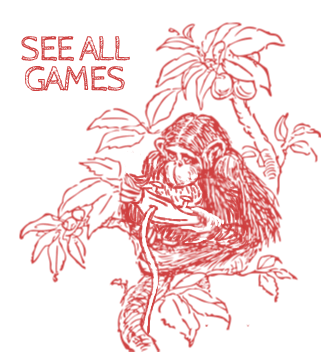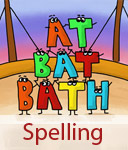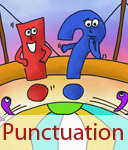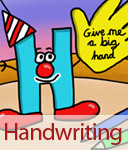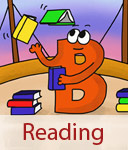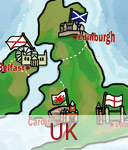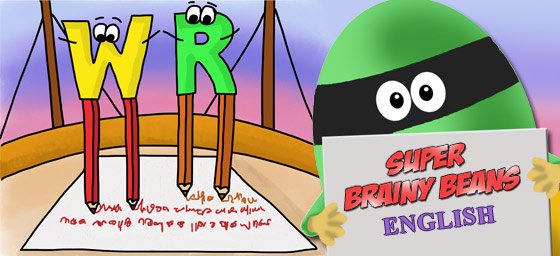
Writing for
Year 2
Writing for Year 2 KS1. English homework help with writing stories, informal letters, postcards, unordered lists, instructions and sentence starters.
Pick a level
Planning what to write
Before you write, say out loud what you are going to write. Does your sentence sound right? Once it sounds ok, write it down.
Checking your work
Once you have finished your writing, read it out loud to see if it makes sense. Happy with it? That's great! Think you could change something to make it sound better? Then do it!
For a final check read your work clearly to someone.
Ways to say 'said'
There are many different words you can use instead of 'said'.
Stop using the word said and try one of these other words.
Story Planning
Every story has a main character(s), a setting and a plot.
Main character(s) - the main person or people in your story.
Setting - Think about when and where your story is taking place.
Plot - This is what happens in your story. There is usually and problem in the story and a solution (how the problem is fixed).
Story order
Every story has a beginning, a middle and an end.
Beginning -
This is where we find out who the main characters in the story are. We also describe the setting (when and where) where the story takes place.
Middle - Here we find out the problem.
End - At the end of the story the problem is solved and we find out what happens to the characters of the story. Did they change because of what had happened?
Use your story plan to help you write your story. Write a beginning, a middle and an end.
 Story Starters
Story StartersUse this fun, interactive tool to start your creative story. Draw a picture and print off.
Beginning of sentences
To make your writing more interesting you can start your sentences in different ways. Here are some ideas:
After walking for a while, they came across the house.
Out of nowhere a car came round the corner.
At the end of the road was a junction.
Print out a list of various ways to start your sentence to make your stories more interesting.
What's happening in this picture of Mr Bean? Write about it.
Writing letters
You can practice writing letters in lots of ways. Some ideas are below:
- Ask a friend at school to become your pen pal and exchange letters.
- Invite your friend to come over for tea by writing to them.
- Except a party invitation by writing a letter.
- Surprise members of your family by posting them a letter about something you have done recently.
- Write a letter to a character from a story. For example, a letter of apology from Goldilocks to the Three Bears.
A4 narrow lined paper to download and use.
Informal Letters
Informal letters are used when writing to friends and family. This could be a thank you letter for birthday or Christmas presents, or you could be writing to tell them some exciting news.
Use this template to practice writing informal letters.
Postcards
Choose a postcard to write home about your holiday.
Desert, Icy Lands, Tropical Island, Under Water.
Unordered Lists
Create your own Birthday or Christmas list with this print out.
Instructions
To write good instructions do the following:
Give your instructions a title.
Watering the garden.
Write a list of what is needed:
Watering can, water, plants
Number the instructions as you go:
- Fill the watering can up with water.
- Carefully pour the water onto the plants near the soil.
- Once the watering can is empty, fill it up again.
- Continue watering the plants until they are all done.
- Use bossy words such as press, stir, cut, mix.
- Use short clear sentences.
- Use diagrams or pictures.
- Use time words such as then, next, after.
Try writing your own instructions on washing up or making the bed. Then read them out and get someone to do it. Did you get it right?

